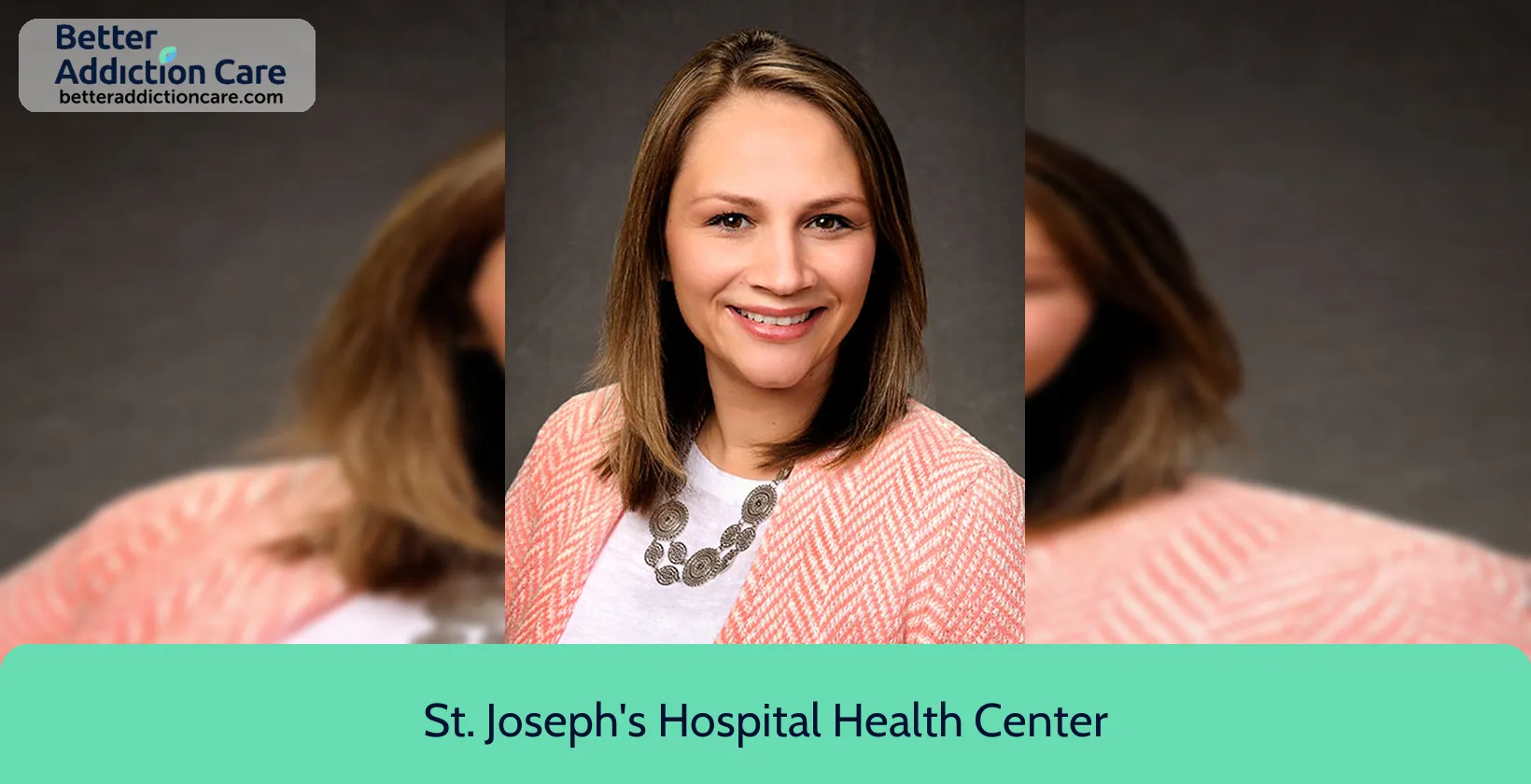St. Joseph's Hospital Health Center - Outpatient Behavioral Health
Overview
St. Joseph's Hospital Health Center - Outpatient Behavioral Health is a mental health treatment center for people seeking treatment near Onondaga County. As part of their treatment modalities for recovery, St. Joseph's Hospital Health Center - Outpatient Behavioral Health provides couples/family therapy, group counseling, and cognitive behavioral therapy during treatment. St. Joseph's Hospital Health Center - Outpatient Behavioral Health is located in Syracuse, New York, accepting cash or self-payment for treatment.
St. Joseph's Hospital Health Center - Outpatient Behavioral Health at a Glance
Payment Options
- Cash or self-payment
- Medicaid
- Medicare
- Private health insurance
- Federal military insurance (e.g., TRICARE)
Assessments
- Screening for tobacco use
- Comprehensive mental health assessment
- Comprehensive substance use assessment
Age Groups
- Young adults
- Children/adolescents
Ancillary Services
- Family psychoeducation
Highlights About St. Joseph's Hospital Health Center - Outpatient Behavioral Health
6.71/10
With an overall rating of 6.71/10, this facility has following balanced range of services. Alcohol Rehabilitation: 8.00/10, Drug Rehab and Detox: 6.00/10, Insurance and Payments: 6.00/10, Treatment Options: 6.85/10.-
Alcohol Rehabilitation 8.00
-
Treatment Options 6.85
-
Drug Rehab and Detox 6.00
-
Insurance and Payments 6.00
Treatment At St. Joseph's Hospital Health Center - Outpatient Behavioral Health
Treatment Conditions
- Mental health treatment
- Substance use treatment
- Co-occurring Disorders
Care Levels
- Outpatient
Treatment Modalities
- Couples/family therapy
- Group counseling
- Cognitive behavioral therapy
- Dialectical behavior therapy
- Integrated Mental and Substance Use Disorder treatment
Ancillary Services
Languages
- Sign language services for the deaf and hard of hearing
- Spanish
Special Programs
- Clients with co-occurring mental and substance use disorders
- Clients who have experienced trauma
- Children/adolescents with serious emotional disturbance (SED)
- Persons with post-traumatic stress disorder (PTSD)
- Persons experiencing first-episode psychosis
Get Help Now
Common Questions About St. Joseph's Hospital Health Center - Outpatient Behavioral Health
Contact Information
Other Facilities in Syracuse

7.40

6.68

6.74

7.34

7.11

6.85

7.18

6.76
DISCLAIMER: The facility name, logo and brand are the property and registered trademarks of CIRCARE, and are being used for identification and informational purposes only. Use of these names, logos and brands shall not imply endorsement. BetterAddictionCare.com is not affiliated with or sponsored by CIRCARE.

